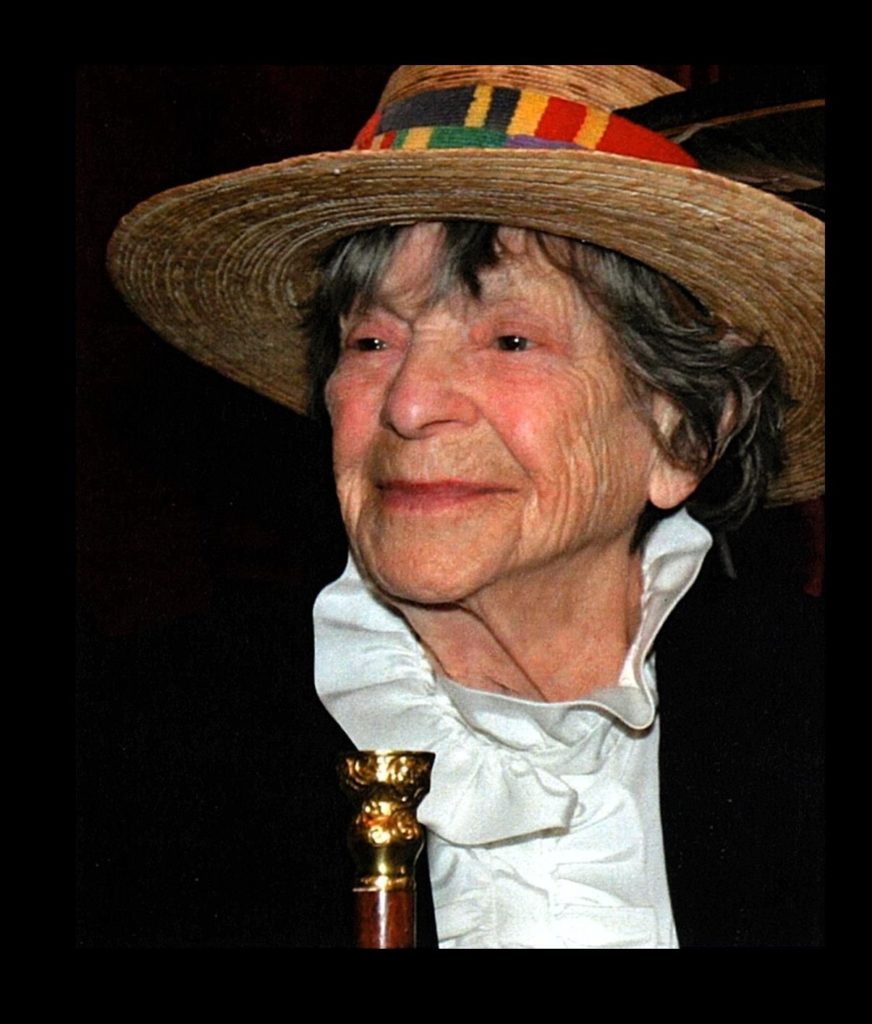
Doris “Granny D” Haddock
Born Ethel Doris Rollins in Laconia, New Hampshire in 1910, Doris Haddock – later to gain national acclaim as “Granny D” – was one of the most important advocates for democratic political reforms at the turn of the 21st century.
Even before she became an activist, the young Doris earned a reputation as a trouble-maker when she was kicked out of Emerson College for the “offense” of getting married (to Jim Haddock).
In 1960, after learning about Project Chariot, a plan hatched by Edward Teller to explode nuclear weapons near an indigenous village in Alaska, Doris and Jim loaded up a VW minibus and headed for Alaska to support the resistance. Teller “wanted to demonstrate how Ameirca might build a new canal in Central America, and the only place defenseless enough for a test of his idea was the far, northwest coast of Alaska,” she wrote in her memoirs.
After a week, they drove back to New Hampshire and organized. “I held tea parties all over New England to tell women what was happening in Alaska,” she wrote. “We saw to it that every member of the Senate was briefed on the project and the harm it would do.” They succeeded. Project Chariot was cancelled after the signing of the Partial Test Ban Treaty in 1962.
“We and all of our friends were investigated up and down by several agencies,” she wrote, “includng the FBI, who imagined that we were Communists. We were Episcopalians.”
After decades working in the office at a Manchester shoe factory, Haddock and her husband moved in 1972 to Dublin, New Hampshire, where she was active in the community and served on the planning board.
Known by the 1990s as “Granny D,” Haddock became concerned about the toxic role of money in American politics when a 1995 campaign finance reform bill championed by Senators Russell Feingold and John McCain was defeated.
On January 1, 1999, the 88-year-old Haddock set off on foot from Los Angeles, aiming to walk all the way to Washigton DC to publicize the need for campaign finance reform. Her 3200-mile walk gained attention with every step until she reached the Capitol on February 29, 2000, shortly after she turned 90. Several dozen members of Congress walked the final miles with her and the McCain-Feingold Act, the strongest federal reform of its time, finally passed not long after.
Granny D founded the NH Coalition for Open Democracy (now known simply as Open Democracy) and continued her activism to the end of her life. She celebrated her 98th, 99th and 100th birthday lobbying for campaign finance reform at the New Hampshire State House.
Granny D wrote three books, all co-authored with Dennis Burke, and ran unsuccessfully for the US Senate in 2004 after the favored Democratic candidate dropped out, ironically due to a campaign finance scandal. The 2007 HBO Documentary “Run Granny Run,” directed by Marlo Poras, told the story of her 2004 Senate campaign.
Read more at Open Democracy’s website.

